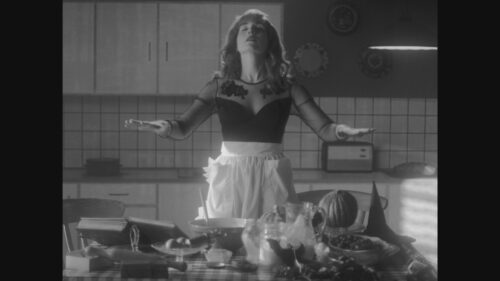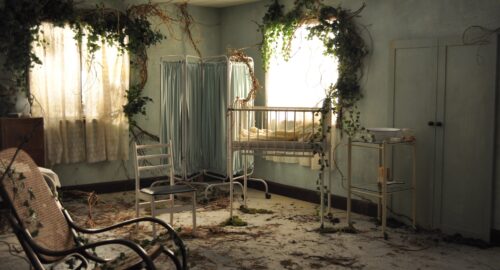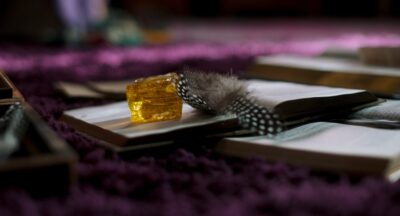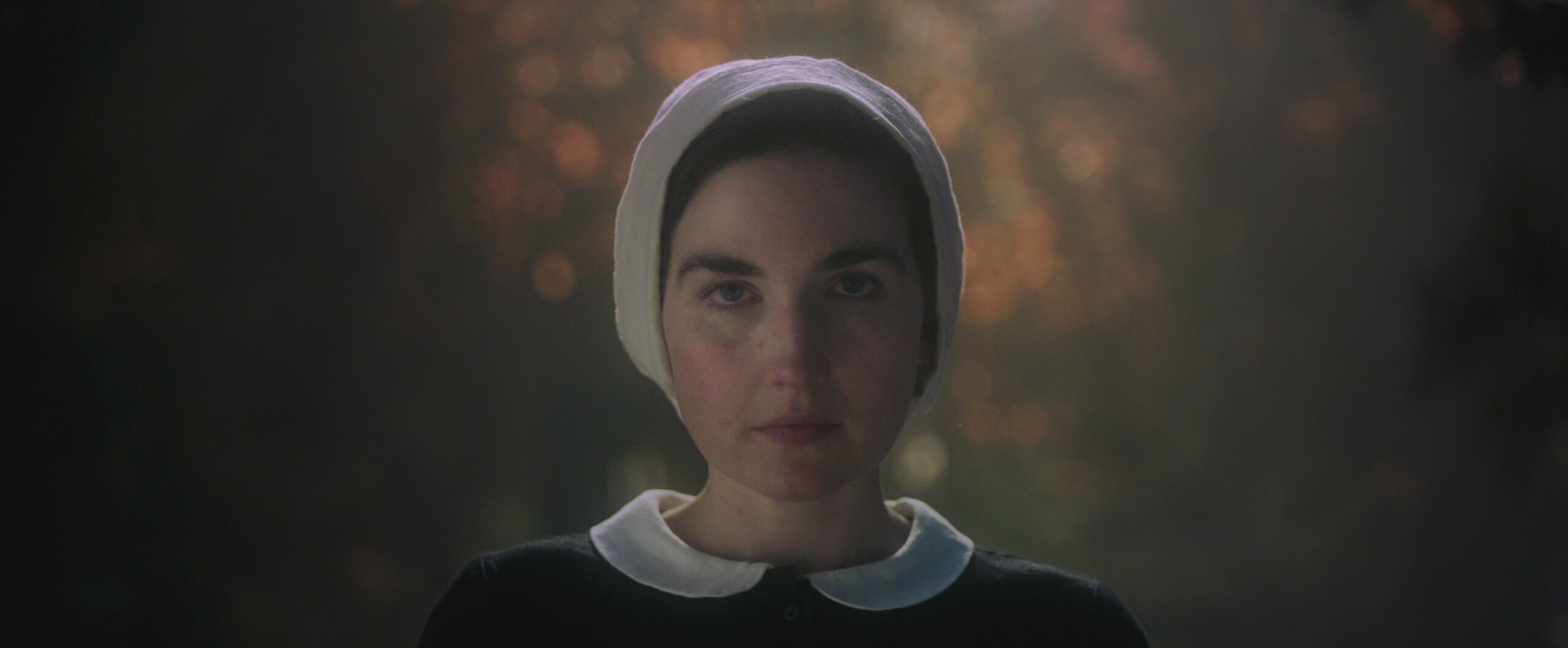With Wicked mere days away from releasing worldwide in theatres, witches have been more present than ever in our daily lives. We’re already familiar with Glinda, the ‘good witch,’ and Elphaba, the ‘bad witch.’ But there’s another film coming soon that touches on this same dichotomy, the good witch and the bad witch, while also exploring something that often is considered too taboo or stigmatized to discuss freely: postpartum depression. This documentary film, aptly titled Witches, was written, directed and edited by its main subject, Elizabeth Sankey, about her own relationship to witchiness and the effects that the birth of her son had on her mental health.
A mere month after giving birth to her son, Elizabeth was admitted to a psychiatric ward for people struggling with postpartum depression, the symptoms of which can include: depressed mood, loss of interest, changes in sleep patterns, change in appetite, feelings of worthlessness, inability to concentrate, and suicidal ideation. Elizabeth recounts her experience with many of these symptoms, going for extended periods without sleep, being afraid to be left alone with her newborn son and having thoughts of taking her own life. It was through a WhatsApp group of mothers experiencing similar feelings (a coven, if you will), that she ultimately got the help she needed.

Throughout the film, Elizabeth speaks about her early memories of wanting to be a witch: brewing potions from flowers and herbs, dreaming of them dancing at night, writing secret spellbooks. But mostly, she watched them on TV and in films. Jeannie in I Dream of Jeannie, Alex, Jane and Sukie in The Witches of Eastwick, Elvira: Mistress of the Dark, to name a few. So it’s no surprise that she uses images of these iconic witches almost as collage to emphasize many points throughout the film.
“A big part of the film, and indeed my illness, was the narrow and suffocating way that popular culture portrays women. It is actually very prescriptive — we are told very clearly how we should and shouldn’t behave,” says Elizabeth.“I wanted to take those images and characters and say that actually these witchy women aren’t scary, they are normal and real. And perhaps even aspirational.”
Another way that Elizabeth crafts this story is through the design of the rooms in which she and other people who have experienced postpartum depression are interviewed. “I really wanted the film to feel, and look, like a spell book. I wanted it to be beautiful and powerful and feminine, but in a way that we don’t see much on screen,” she says.
The sets, built with the help of production designer May Davis, were based on the room she had during her time at a psychiatric ward. “So you have a dilapidated, haunted hospital room, which is how I felt about the ward when I first arrived — that it was scary and unsafe. Then there is the 90s teen witch bedroom which represents my youthful love of witches and also how the hospital room began to feel the longer I stayed there, and brought in my own stuff from home to make it feel more warm and cozy. And then the third set is a witch cottage which links to my acceptance of my darker, witch side, and my love of her.”

Some of the many people interviewed in the film include Catherine Cho, an author who wrote a book about her experience with postpartum psychosis after the birth of her son, Sophia Di Martino, an actress who also experienced postpartum depression, Dr. Trudi Seneviratne, a perinatal psychiatrist, and David Emson, who tragically lost his wife Daksha and daughter Freya, the former of whom suffered from postpartum.
When asked about the conscious choice of highlighting stories from various backgrounds and experiences, Elizabeth noted, “It is so important to me! […] When we were looking for contributors for the film we asked so many women from so many different backgrounds, but the fact is, these illnesses are really scary to talk about publicly.” She continues, “even Dr. Trudi Seneviratne, one of the leading medical practitioners in her field in the UK, […] has never spoken about her personal experience of postpartum psychosis publicly before this film. And as she says, that’s because of stigma.”
This ultimately led to Elizabeth’s biggest revelation throughout the entire process of making this documentary. “Women have always been plagued by shame and guilt and stigma,” she states. “It is built into the patriarchal structure in which we live. […] So if there is one thing I could do for humanity it would be to stop those feelings in their tracks. To alleviate all of that shame and guilt and just encourage every woman to live her life the way that works for her and ignore the dissenting voices.”

As for her biggest lesson through her journey with postpartum depression, Elizabeth says: “ I am and always have been mad and embracing that has been the best thing I could have ever done for myself. I always needed medication, I always needed therapy, and I am so glad for the dark and witchy side of myself.”
Looking ahead, Elizabeth’s hope is guiding her towards a brighter future for women’s health. “Better care, less bias and racism in terms of treatment, more conversation, more awareness, more support. Free access to abortions around the world!”
And this vision includes mothers and non-mothers alike as a united coven. “I am so happy I am a mother – it was 100% the right choice for me. It has enriched my life and filled it with love, but of course it isn’t for everyone. I think we need to see more childfree/childless women in our society being celebrated and supported, and I hope our film can be part of that conversation.”
Witches is available to stream on MUBI starting November 22.




 Follow Us On Instagram
Follow Us On Instagram
